- About us
- Support the Gallery
- Venue hire
- Publications
- Research library
- Organisation chart
- Employment
- Contact us
- Make a booking
- Onsite programs
- Online programs
- School visit information
- Learning resources
- Little Darlings
- Professional learning
“All the women (the dark circles), when they used to smash the skin for this tree, and poison the fish in the water. They make them fish lose oxygen and come up la water. When that fish bin come out of the water, it’s not poison, they can still eat ‘em.
This the water (grey area). This the two flat rock (yellow and white).”
When Shirley was a little girl, she watched all the old people on Mabel Downs Station. She would go with the old people on weekend outings such as picnics. She’d follow the women to crush the bark of the Mangoonji tree to form a soapy lather. This lather was used as a natural poison to kill the fish, but it was harmless for human consumption. This technique of fishing has been used by Aboriginal people in the Kimberley for many years, and was passed down to Shirley from her ancestors. It was used because people didn’t have fishing lines or nets, and this knowledge from the women helped Shirley’s people survive.

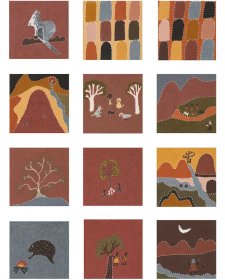
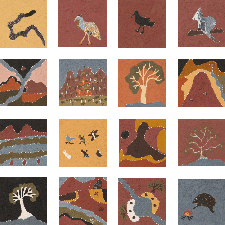
27 May 2020
Emily Casey takes in Shirley Purdie’s remarkable self-portrait, Ngalim-Ngalimbooroo Ngagenybe.
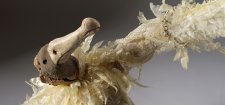
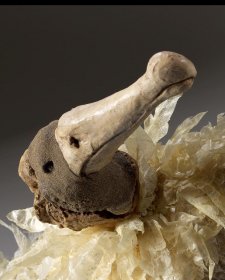
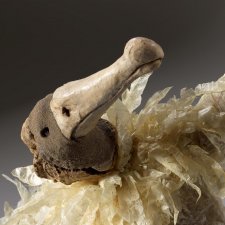
This exhibition features new works from ten women artists reinterpreting and reimagining elements of Australian history, enriching the contemporary narrative around Australia’s history and biography, reflecting the tradition of storytelling in our country.



Visit us, learn with us, support us or work with us! Here’s a range of information about planning your visit, our history and more!